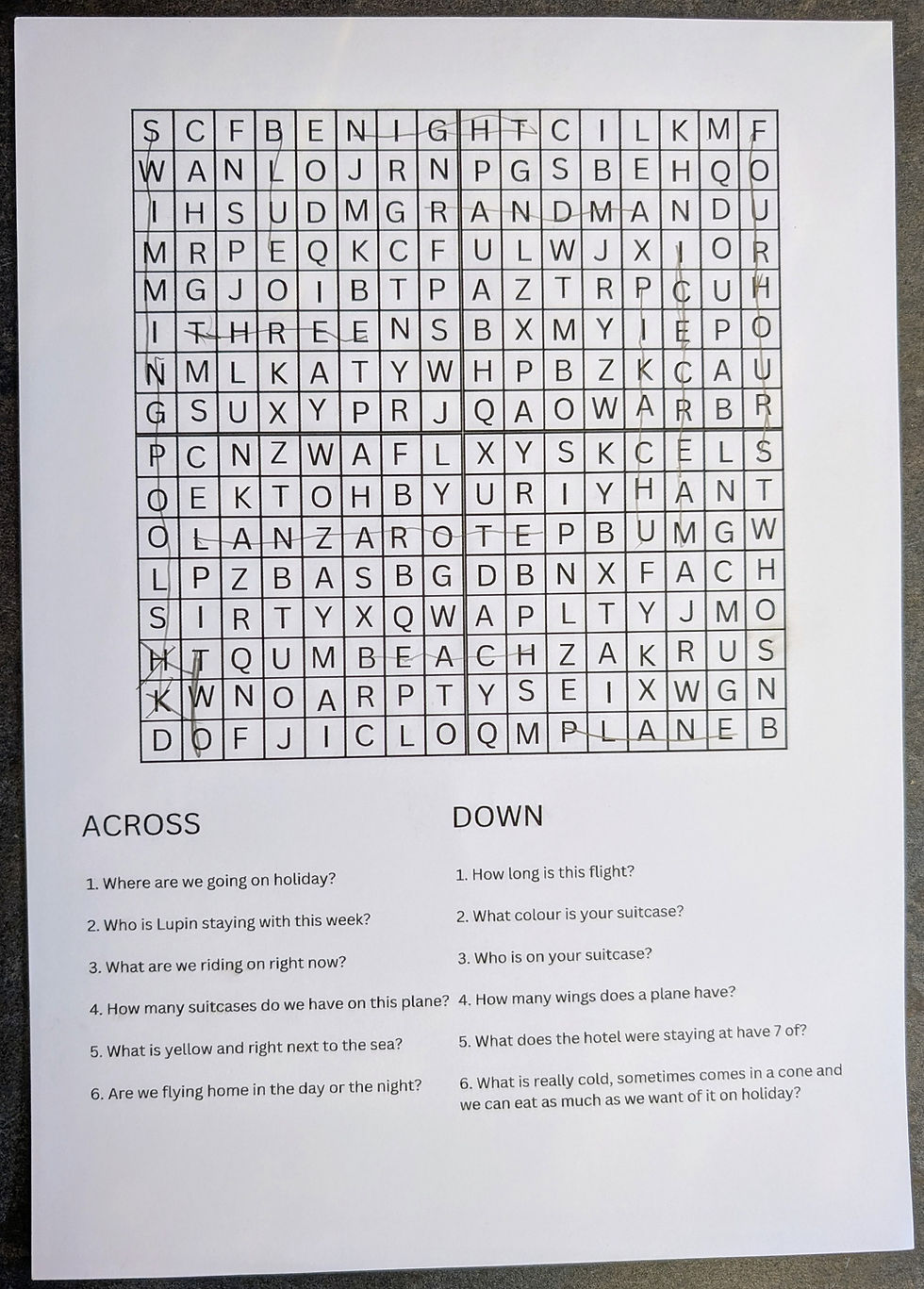Navigating Holidays as a Neurodivergent: Individual Tips and Strategies
- Emma Warren
- Jun 6
- 3 min read
Going on holiday can be an exciting yet daunting experience, especially when you’re contending with Autism and ADHD. I often feel sub-consciously nervous in the sense that if someone was to ask me, I’d say, “yeah, I’m really excited about going away”, but my body tells a different story. I begin with stomach aches about a week before hand which can make me food avoidant, I often have jaw ache because I have been clenching my jaw and grinding my teeth during my sleep. I can have vivid and somewhat disturbing dreams and not always necessarily about the thing that’s worrying me. I become more forgetful and more panicky about everyday things that usually wouldn’t cause as much of an overdrive response. It’s like you can usually keep the overwhelm at bay, self sooth and bring out the usual strategies that allow you to continue with your day smoothly. However, when nerves are background, this can cause the everyday overwhelm to harder to manage.
I become aware of this and recognise these symptoms, even though on the surface I’m still feeling fine and somewhat excited about the upcoming holiday. The body is a very clever thing that can react accordingly with those sub-conscious feelings that you might not be in tune with. Always listen to your body- it knows what’s what.
It’s different with Finley as he isn’t that aware of what’s to expect and so therefore, he doesn’t have the same pre-symptoms that I seem to have arise. Finley’s is more of an in the moment reaction, which means that you it can be unpredictable and so the same measures of preparation as myself are equally important even if he is raring to go with excitement, I do not let this betray me into thinking everything will be ok without some preparation.
So, what’s the plan Stan?!
Pre-planning, of course!
Before You Travel
Plan Ahead (with lots of detail!)
Use visual schedules for each part of the journey — packing, getting to the airport, security, flying, arrival.
Create a countdown calendar or visual timer for the trip.
Look at photos or videos of the airport and airplane to reduce uncertainty.
Social stories can help both you and your child understand what to expect and what each step might feel like.
Prep with Sensory Needs in Mind
Pack a sensory toolkit: headphones, fidget toys, chewy jewellery, sunglasses, weighted items, snacks, etc.
Choose comfortable clothes with no itchy tags or tight seams.
Alert the airline in advance for special assistance (pre-boarding, quiet space, support at security, etc.).
Research beforehand
Many airports have hidden disability lanyards, quiet rooms, or fast-track security options.
Some offer autism-friendly guides or pre-travel visits.
At the Airport
Arrive Early (but not too early)
Give yourself time, but not so much that waiting becomes overwhelming.
Use noise-cancelling headphones or calming music while waiting.- Know Your Break Spots
Find quiet corners, sensory rooms, or low-traffic gates to decompress.
If overstimulated, step away to regroup — even a quick walk helps.- Keep Needs Close
Have a bag with snacks, drinks, meds, comfort items, and calming activities within easy reach.
On the Plane
Bring Distractions
Pack familiar and engaging activities: tablets, sticker books, drawing, sensory toys.
Offer rewards or tokens for each stage completed.
Let the Crew Know
A quick word to the flight attendants can help if extra support or understanding is needed.
Use communication cards or badges for yourself or your child if verbal communication is hard under stress.
On Holiday
Create a New Routine
Even if it’s relaxed, having a predictable flow to the day helps reduce anxiety.
Use a visual schedule or checklist for each day — include breaks and downtime.- Give Yourself Grace
You don’t have to do everything. It’s okay to say no, rest, or change plans.
Celebrate small wins (like making it through security or trying a new food!).
Quick Tips Recap
✅ Bring familiar items (blanket, toy, snacks)
✅ Use visuals, timers, and social stories
✅ Communicate your needs to staff early
✅ Have an "exit plan" or quiet retreat wherever you go
✅ Build in extra downtime every day
✅ Praise and reward small successes
✅ Take care of yourself too — your regulation helps theirs















Comments